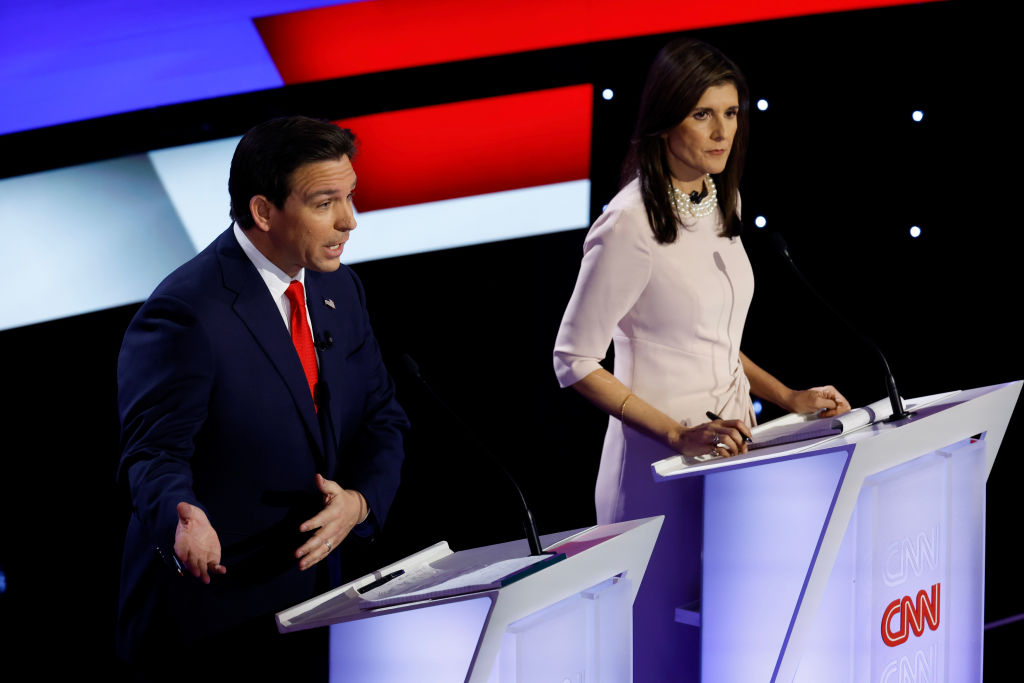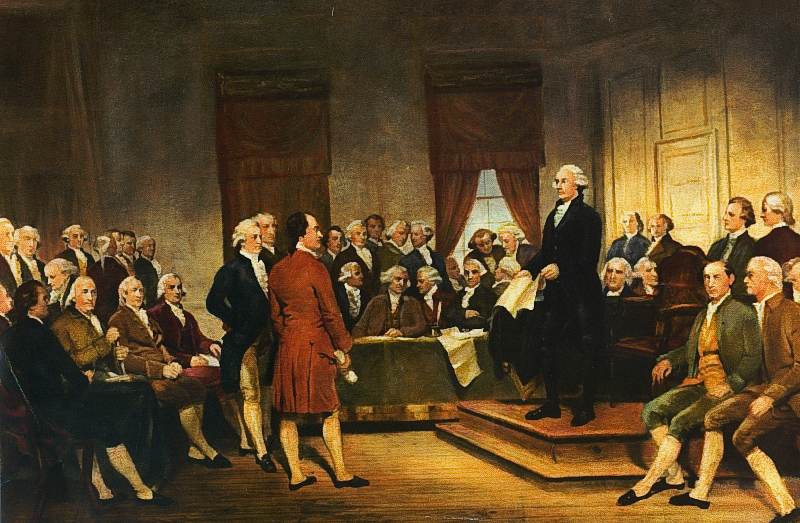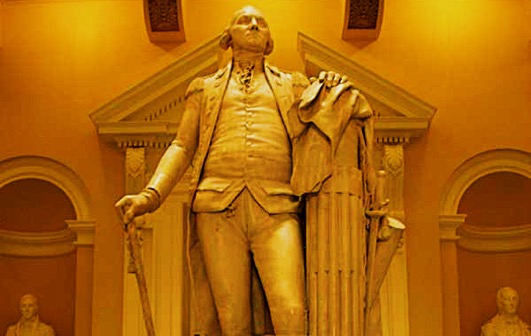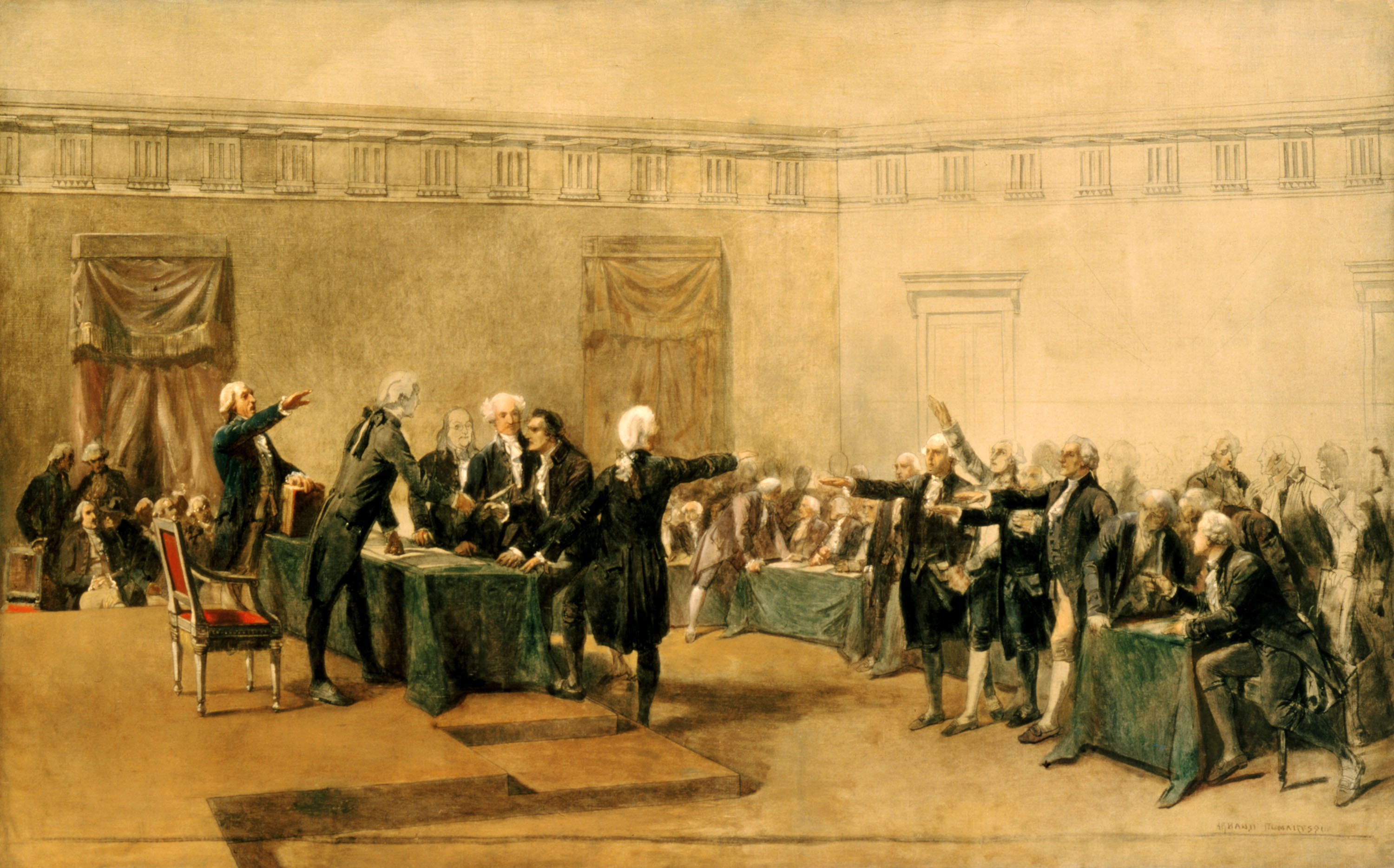Root, root, root for the electors. If they don't win it's a shame.
DeSantis v. Haley on the Constitution

A clarifying exchange.
Too often, presidential debates don’t focus on the matters of greatest importance—such as candidates’ familiarity with, and devotion to, our founding documents. During Wednesday night’s Iowa debate, however, one question invited answers that struck directly at these crucial matters.
The debate, occurring just five days before the Iowa caucuses, was a one-on-one duel between Ron DeSantis and Nikki Haley, as Vivek Ramaswamy didn’t qualify and Donald Trump declined to attend. About two-thirds of the way through the debate, CNN’s Jake Tapper observed, “Two years after losing the 2020 election, Donald Trump wrote on social media, ‘A massive fraud of this type and magnitude allows for the termination of all rules, regulations and articles, even those found in the Constitution.’”
This was clearly an indefensible statement by Trump. Two days later he tried to walk it back, suggesting that he had been falsely quoted. But he’d plainly said it.
Tapper then asked each candidate, “[I]s there any meaningful difference in how you and Donald Trump view the Constitution?”
DeSantis’s knowledge of, and regard for, the Constitution shone through in his answer. He seemed completely comfortable talking about the founders’ extraordinary handiwork. Haley, in contrast, gave the impression that she’d never really studied the Constitution and perhaps hadn’t even read its four pages all the way through.
Tapper first addressed the question to Haley, who replied, “I mean, look, you take an oath to the Constitution.” She then immediately switched to talking about how she thought January 6 was “a terrible day,” the need for fair elections, and how she thought Biden won the election, before finally saying, “But at the end of the day, I will always defend and fight for the Constitution. That’s what we should do as Americans.” And that’s all she had to say about the Constitution.
Tapper replied, “A clarification, Governor: Is there any meaningful difference in how you and Donald Trump view the Constitution?”
Apparently unable to think of any way in which this might be true, or to think of anything to say about the Constitution whatsoever, Haley then replied,
Well, I mean, I think that he says January 6th was a beautiful day. I don’t think it was a beautiful day. I think you look at that. He thinks that he could go and bring in—the fact that he wanted to change what the states did, the fact that he wanted to overturn the elections in D.C., those votes happen at the state level. You don’t ever allow in D.C. for those votes to be changed at the federal level. States’ rights matter.
This did not exactly evoke the tone or substance of the Lincoln-Douglas debates.
Tapper then moved on, asking the same question of DeSantis. The Florida governor replied, “My role model for how to [view] the Constitution is George Washington. He said the Constitution is the guide that I will never abandon.” DeSantis then recalled his own commissioning ceremony to become a U.S. Navy officer: “You raise that hand, you put that left hand on the Bible. And it’s interesting: The oath doesn’t say that you’re going to defend the shores of the United States, or engage in military conflict. The oath simply says that you will support and defend the Constitution of the United States.”
This is the very point that I used to make to cadets on day one of the core American government class that I taught at the U.S. Air Force Academy. I’d remind the students that they would soon be taking an oath to support the document that the founders wrote during those four fateful months in the summer of 1787. Since they would be pledging to lay down their lives in defense of that document if necessary, I suggested, it was presumably crucial for them to understand what that document actually said. (Haley would probably have benefitted from that class.)
Turning back to Trump’s comment, DeSantis then said, “You can’t just terminate the Constitution. I mean, I know he does, you know, word vomit from time to time on social media, but obviously I will uphold the Constitution.”
DeSantis then pivoted to the genuine constitutional threat that our nation faces: the threat from the Left (which I’ve written about at the Claremont Review of Books). He highlighted the way that executive officials, following the foolish and shortsighted guidance of the public health establishment, trampled all over Americans’ constitutional rights under cover of the COVID-19 emergency. In this vein, DeSantis said,
And I think it’s fine to criticize Donald Trump, and I know the media brings this up a lot. But you know who else deserves to be criticized? The people that violated the Constitution during COVID to lock people out of schools, to destroy businesses, to force masks on people, to try to force vaccines. I’m going to bring a reckoning to all these agencies. The CDC, the NIH, the FDA, they harm people in this country.
A few minutes later, DeSantis demonstrated that he recognizes a further great threat to the Constitution from the Left: the effort to impose a “climate change” regime by executive fiat.
Tapper asked a longwinded “climate change” question that suggested universal agreement among experts that large swaths of the Earth were about to go underwater. At the end, he asked DeSantis, “[A]s President, would you do anything to deal with the underlying cause, which scientists agree requires cutting carbon emissions?”
Without any lead-in and without paying any lip service to Tapper’s framing of the issue, DeSantis immediately replied: “So, on day one as President, we take Biden’s Green New Deal. We tear it up, and we throw it in the trash can.”
This is how one properly deals with extraconstitutional presidential or bureaucratic decrees. America is a republic, which DeSantis seems to understand more fully and deeply than either Haley or Trump—and certainly far more deeply than Biden the Imperious.
In the end, voters will ultimately get to decide which man or woman takes the oath to “faithfully execute the Office of President of the United States” and to “preserve, protect and defend the Constitution of the United States.” It’s easy to forget that fulfilling this constitutional responsibility, even more than pursuing particular policy preferences, is the essence of the proper presidential role.
The American Mind presents a range of perspectives. Views are writers’ own and do not necessarily represent those of The Claremont Institute.
The American Mind is a publication of the Claremont Institute, a non-profit 501(c)(3) organization, dedicated to restoring the principles of the American Founding to their rightful, preeminent authority in our national life. Interested in supporting our work? Gifts to the Claremont Institute are tax-deductible.
Remarks accepting the Claremont Institute’s Henry Salvatori Prize in the American Founding, Washington, D.C., October 27, 2018.
We don’t need a revolution to find political redemption.






